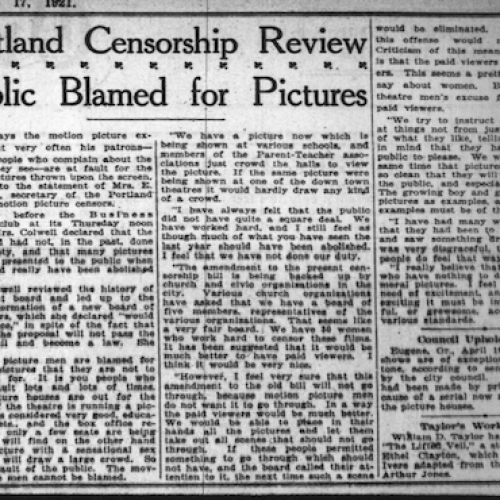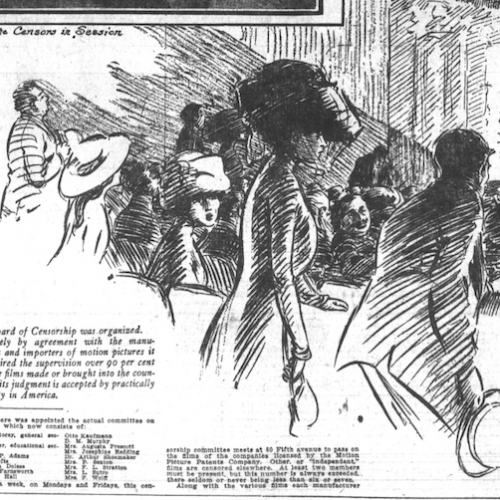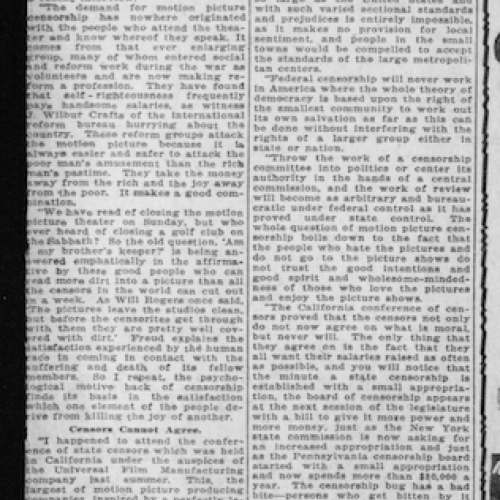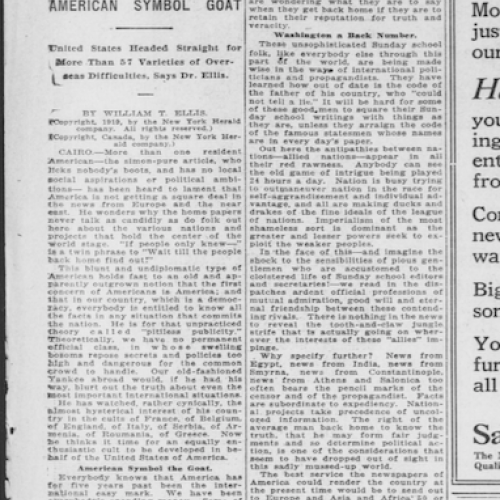The early 1900's era of filmmaking was under the firm grasp of the National Board of Censorship, an organization formed to prevent the showings of indecent or suggestive content in movies. This became quite a hot topic among viewers at the time. Some Americans preferred a restriction on what they considered to be inappropriate while others favored a more risqué style. This debate did not go unnoticed in Portland, Oregon and in fact seemed to emphasize the same national issues. Listed below are four separate segments from two Portland Newspapers between years of 1910 and 1922. The Oregon Daily Journal pieces align with a more pro-censorship mindset while the two articles from The Sunday Oregonian document the downsides and negatives that censorship posed at the time.
From the perspective of the exhibitioners and theaters at the time, censorship was good and bad. For any picture house, their goal would have been to make as much money as possible with the most viewers with each showing. Due to the ever increasing divide between the curious and the conservative, filmmakers were stuck between a rock and a hard place. In "Censorship and Propaganda," the article compares censorship to be everything that is against democracy, and therefore American values. American's should be given the right to choose what they can and cannot watch and what will or will not be shown in public theaters (3). However, "Portland Censorship Review," describes the opinions or many younger, Christian women who oppose the freedom of crass films being published simply for the amount of money brought in. Certain films drive certain audiences and so consequently should not be so open to all audiences. Many churches at the time would have small theater showings of their own at church even schools to offer children or others the chance to view films of a 'higher class' (1).
It was a time of continuous struggle between breaking rules and reinforcing new laws, governing Cinema but also taking liberty, freedom. Upholding superstitions and societal norms, but also breaking the mold, making a difference.
Works Cited:
(1) "Portland Censorship Review," The Oregon Daily Journal, April 17th, 1921:2 Historical Oregon Newspapers.
(2) "The Rigid Scrutiny Moving Picture Films Pass," The Oregon Daily Journal, September 25th, 1910:54 Historical Oregon Newspapers.
(3) "Federal Movie Censorship Held Impractical Dream," The Sunday Oregonian, April 9th, 1922:3 Historical Oregon Newspapers.
(4) "Censorship and Propaganda," The Sunday Oregonian July 27th, 1919:7 Historical Oregon Newspapers.



